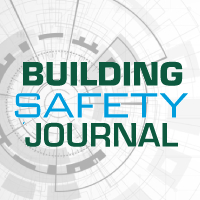
Cities trust, but don’t always verify, safety of high-rises
![]() In the years before a section of their high-rise suddenly collapsed, residents of Champlain Towers South, a 12-story beachfront condominium in the Miami suburb of Surfside, Florida, were working to address defects identified in a periodic structural safety review, an unusual local requirement for all tall buildings that reach 40 years old.
In the years before a section of their high-rise suddenly collapsed, residents of Champlain Towers South, a 12-story beachfront condominium in the Miami suburb of Surfside, Florida, were working to address defects identified in a periodic structural safety review, an unusual local requirement for all tall buildings that reach 40 years old.
An investigative team from Newsy reviewed building codes in seven major American cities and found the more common approach is to require checking structural integrity only when a tower is new. After that, city codes diverge. New York, Boston, Chicago, Philadelphia and San Francisco call for routine checkups only of tower exteriors, where pieces might fall off and hurt someone on the ground. Definitions of a high-rise vary, as do how often re-inspections should occur: every five years in Boston, up to every 12 years in Chicago. Seattle re-certifies towers only after damage from an event such as an earthquake. Houston requires inspections of apartment buildings every four years, but not condominiums unless someone makes a complaint.
The cities are following guidance from the International Code Council. The association’s model building codes — known as the International Codes or I-Codes, which are the most widely accepted, comprehensive set of model building safety codes used in the United States — don’t say anything about whether high-rises should be re-inspected, only that they should be maintained and stay structurally sound. But that may soon change. The association is planning to meet in August to discuss the collapse and to consider periodic building inspections. It also will review any findings from investigators at the National Institute of Standards and Technology who are on the ground in Surfside, Fla.
“The forces that are acting on buildings are changing,” said International Code Council Chief Executive Officer Dominic Sims, CBO, “…we’re going to want to hear from the experts.” He added people will expect tougher building codes following the tragedy in Surfside and that there is a “very strong likelihood” the Code Council will adopt new guidelines for routine re-inspections of high-rises, at least for areas in the bullseye of climate change with sea-level rise and stronger storms. “Just the mere fact that it did fall, and in the U.S., that’s not something that I think the public will accept,” Sims said.
Source: Newsy







